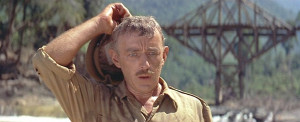In a bombshell, “jaw-dropping” news report, according to secret documents obtained by WikiLeaks, Adolf Hitler called for a priest during his last days in his Berlin bunker. In addition, agents from the Office of Strategic Services (OSS) were able to surreptitiously plant a listening device in the priest’s briefcase. Hitler’s entire confession was recorded and transcribed by the OSS and buried in the secret archives of the agency – which eventually became the CIA. The leaked (translated) transcript follows.
“Heil, mein Führer!”
“Good morning, Father, please come in…” [The two men engage in small talk for several minutes before the Confession begins]. The priest transitions to the Confession with the Sign of the Cross and Hitler begins.
“Bless me Father for I have sinned, it has been since early childhood that I have not been to Confession. Here are my sins. I disobeyed my mother and father innumerable times. I got angry with my coworkers maybe twice a week on the average. I had impure thoughts. I repeatedly engaged in sex outside of marriage, but only over the last couple of years – and I didn’t go all the way. I am habitually impatient in traffic. For these and all my sins, I am truly sorry.”
The priest gives a rosary as a penance, grants the absolution, and Hitler’s attendants are called to usher the priest from the bunker.
OK, as you may have already guessed, I’ve made all this up. To begin with, I wouldn’t dare violate the Seal of Confession, in any case. But beyond that, my guess is that you – and almost everyone – would object to the content of this Confession.
There’s no mention of hatred of Jews, gypsies, Catholics, etc. (Was it “hatred” or a rationalization of the “virtues” of his “master race”?) There was no mention of horrible medical experiments on concentration camp inmates; no mention of the extermination camps. The Confession is superficial and dishonest, you might say: “If I were Hitler and if I had gone to Confession in that bunker, my confession would be sincere and integral, doggone it.”
Maybe.
Classic movies may not be a reliable substitute for spiritual direction, but they sometimes provide interesting and useful metaphors for the human condition. One of my favorites as a kid was “The Bridge on the River Kwai.”
During World War II, British prisoners arrive by train at a Japanese prison camp in Burma. The Japanese commandant informs them that all prisoners, regardless of rank, are to work on the construction of a railway bridge over the River Kwai that will connect Bangkok and Rangoon.

The senior British officer (played by the notable Catholic convert Alec Guinness) initially objects, but gives in after British prisoners are tortured for not cooperating. Despite its military value to the Japanese, the officer sees the bridge building as a means for maintaining morale. The bridge is completed and spirits are high.
As a train filled with enemy munitions makes its way over the newly completed bridge, Guinness at first resists a commando unit dispatched to destroy it. But wounded in the fight, he comes to his senses exclaiming, “What have I done?” The dazed colonel stumbles towards the detonator and collapses on the plunger, just in time to blow up the bridge and send the train hurtling into the river below.
The metaphor is obvious. Under extraordinary (well, even ordinary) circumstances, it is very easy to make peace with evil. The rationalization becomes so compelling that the cooperation is no longer viewed as evil, but necessary and good. It often takes a traumatic experience to bring us to our senses.
We hope for a large number of such conversions, true repentance similar to the example of “The Good Thief” on Mount Calvary. But how common are they?
An elderly hospital chaplain once told me that in his experience death-bed conversions are rare. A priest friend of mine has a vivid memory of a nun warning her grade school class not to count on an eleventh hour conversion, insisting, “As you live so you will die.” And in The Art of Dying Well, Saint Robert Bellarmine dedicates a chapter to, “He Who Desires to Die Well, Must Live Well.”
It’s a chilling thought. But it’s simply the truth that many of us may die in our sins because we are unable to see the evil of the peace we’ve made with the demons.
We lament the state of our country and the world and even many of our fellow believers: the inability of large numbers of people to see the evil of abortion, contraception, in-vitro fertilization, so-called “gay marriage,” voting for “pro-choice” political candidates because “abortion is just one issue,” and so on.
Large numbers of “religious” and “deeply spiritual” people have always made peace with evil – and have actively opposed truly virtuous people. Indeed, it’s always unnerving to consider the intransigence of the Pharisees despite the evidence of the goodness of Christ.
But there’s something even more unnerving. Have we ourselves – traditional-minded, pro-life Catholics made peace with some profound evil that has been buried somewhere in the tangle of our minds? What sins or patterns of sin are we overlooking or rationalizing when we go to Confession? If we could see ourselves with the eyes of others – through the eyes of God – what would we see?














